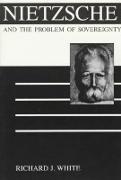A Collection of the Most Approved Examples of Doorways (Classic Reprint)
BücherAngebote / Angebote:
Excerpt from A Collection of the Most Approved Examples of Doorways
Doorways are so material a feature in every edifice, so much may the majesty and importance of public buildings and the beauty and convenience of private dwellings be improved or deteriorated by the judicious or inelegant arrangement of the door, that it is to be hoped, these will be considered sufficient reasons for the attention, which it is proposed to bestow upon the subject. If from the mouth the human countenance derives beauty and expression, so does a façade become appropriate and graceful from the proper allocation of the door, the primary object to which every other is subordinate. A strong argument is also to be derived from the intrinsic merits of the doors themselves, which, as the work will prove, concentrated almost every attraction of architecture, and possessed so many beauties in themselves, as to increase our admiration for the inexhaustible resources of the ancients.
With the view to illustrate every circumstance relating to the subject, there is given in the introductory chapter a brief Sketch of the customs and usages of the Ancients, as connected with Doorways. This is condensed into a form sufficiently full, not to omit any important particular, yet not entering into that prolix detail, which gives a dry and abstract character to the treatise De jantris Veterum of the indefatigable Sagittarius. The second chapter contains the Text of the sixth chapter of the fourth book of Vitruvius with a translation and comments. The author trusts, that the motives, which led to the adoption of one of the codices in the British Museum, will be appreciated by those, who are acquainted with the original Latin text of the Roman, and will therefore preclude the necessity of a lengthened explanation. It was in the first instance the intention of the author to have made use of the generally received text of Philander and Barbaro, who have followed, almost without exception, that of Jocundus. But, upon comparing this text with that of the manuscripts in the British Museum, numerous variations and interpolations appeared to have been introduced by Jocundus. This discovery led him to consult other commentators, when he fortunately took up the text and notes of Schneider, the most valuable Editor of the wort of this Roman Classic. The remarks of the learned Saxon confirmed the intention of adopting one of the codices of our national library, and led, by the correction of some palpable errors, noticed in the notes, to the restoration of this portion of the work of Vitruvius to its original simplicity and form.
About the Publisher
Forgotten Books publishes hundreds of thousands of rare and classic books. Find more at www.forgottenbooks.com
This book is a reproduction of an important historical work. Forgotten Books uses state-of-the-art technology to digitally reconstruct the work, preserving the original format whilst repairing imperfections present in the aged copy. In rare cases, an imperfection in the original, such as a blemish or missing page, may be replicated in our edition. We do, however, repair the vast majority of imperfections successfully, any imperfections that remain are intentionally left to preserve the state of such historical works.
Folgt in ca. 5 Arbeitstagen




